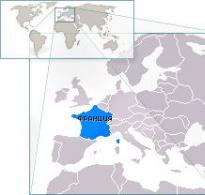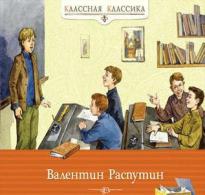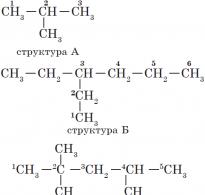Analysis of "Overcoat" Gogol. Nikolai gogol - overcoat Who wrote the nose and overcoat
The story "The Overcoat" was written in 1842 and was published in 1843. True, N.V. Gogol positions this work as a ghost story. It must be assumed that he included the episode about the ghost in order to divert the attention of the censors from the deeply social problem of inequality. This work was declared by progressive literary critics as "a manifesto of social equality and the inalienable rights of the individual in any state and rank."
The main characters of the story "Overcoat":
Akaki Akakievich Bashmachkin - one department official. He was a short man, somewhat pockmarked, somewhat reddish, somewhat even blind-sighted, with a slight baldness on his forehead, with wrinkles on both sides of his cheeks, and a complexion that is called hemorrhoidal. This official was in the rank of titular adviser. The rank is not the lowest, the ninth, but he kept himself somehow humiliated, was beaten and intimidated that even the watchman did not show him due respect. There were no copying tools at that time, there was no typewriter either, so lower-class officials performed a huge job of copying documents. He loved his work, had a beautiful, almost calligraphic handwriting, and did it carefully. But he didn't get any further than that.
He lived in poverty. Didn't like any entertainment. And even in order to raise money for a new inexpensive overcoat, he had to cut himself in expenses. He did not notice at all what was happening around him. He also did not notice that his overcoat had fallen into disrepair until it began to blow in places where the fabric was completely frayed and leaked.
On the advice of one of his colleagues, he turned to a significant person, in the hope that he would somehow influence the course of the investigation to find his overcoat, but the acquaintance turned out to be fatal for poor Akaky Akakievich. He did not know that the Significant Person, with his cry and desire to intimidate the lower in rank, supported his insignificant significance. He thought he had done something terrible, and became so upset that after meeting this man, he fell ill with a fever and died.
Petrovich - a tailor from former serfs. He liked to drink very much, and did not miss a single holiday for this occasion. When sober, he was irritated and adamant, and when "drunk" or with a hangover, he was very accommodating. He knew his business well, so he never sat without work. At first, he told Akaky Akakievich the price of 150 rubles for an overcoat, but when the official arrived at a more favorable moment, Petrovich almost halved the price, taking only 80 rubles for the work.
Significant person - official. Having risen from the bottom, and having gained some power, this significant person sought to emphasize his significance in a special way. He demanded that his subordinates meet him on the stairs. And so that complaints are submitted to him from the bottom up in the hierarchy. The subordinates were afraid of him. “His ordinary conversation with the lower ones resounded with severity and consisted of almost three phrases: “How dare you? Do you know who you are talking to? Do you understand who is standing in front of you? However, he was a kind person at heart, a good comrade, but the rank of general completely confused him. Having risen through the ranks, he was somehow confused, turned out to be confused and definitely did not know how to behave, how to behave with his subordinates. If he fell into a society of equals in rank, he was still a very decent person in many respects. And not even a stupid person. He was even able to come to someone's aid.
But as soon as he got into the company, people standing at least one rank below him, he became silent, gloomy. He himself understood that he could pass the time much more interestingly. He himself would not mind sitting down to some kind of circle, maintaining an interesting conversation for him. His impulses were restrained by the thought: wouldn’t this be too much on his part, wouldn’t it be familiarity, and wouldn’t he thereby lose his unshakable significance? “And as a result of such reasoning, he remained forever in the same silent state, uttering only occasionally some monosyllabic sounds, and thus acquired the title of the most boring person.”
The work ends with the appearance of a certain ghost in the city, which began to remove the overcoats from passers-by. It must be assumed that the ghost was invented by frightened citizens. And it was the same robbers who took off the overcoat from Bashmachkin. The police have no time to deal with such unimportant and non-resonant cases. Well, just think, the overcoat was removed from some "insignificant person." They didn't kill it.
In one department there is an official Akaki Akakievich Bashmachkin. When he was born, they chose a name for him for a long time, but the names came across very strange, so they decided to name him in honor of his father. In the department for many years now he has been an eternal titular adviser - he rewrites various papers. In the service, no one respects him, everyone laughs and mocks him. Bashmachkin is an unrequited person, cannot stand up for himself, but serves "with love", he even has his favorite letters. He can do nothing but mechanically rewrite documents. Akaky Akakievich is always poorly dressed, and what he eats does not matter to him. All his thoughts are occupied only with even lines. In addition, he does not allow himself any entertainment, which, in his opinion, is excess. He would be quite satisfied with his life if he did not have to freeze, since his old overcoat, which has long been the subject of ridicule of his colleagues, has completely worn out. Bashmachkin takes it to the tailor Petrovich to alter it, but he refuses, since the fabric is already rotten through and through, and advises sewing a new one. Then Akaky Akakievich begins to save money for a new overcoat, setting himself the strictest saving regime, for example, he refuses to drink tea in the evenings, does not light a candle, tries to give the laundress to wash clothes as rarely as possible, and so on. Six months later, Bashmachkin and Petrovich buy cloth, a cat for a collar, a tailor sews an overcoat in two weeks, and a "solemn day" comes in the life of a little official. In the service, everyone runs to look at the new overcoat. Another official decides to arrange an evening, inviting everyone to his place. Away Bashmachkin feels uncomfortable and leaves earlier than the others. On the way home, he is beaten and his overcoat is taken away. Trying to find justice, the hero goes to see a private bailiff, but to no avail. The department recommends contacting a "significant person". Bashmachkin hardly gets an appointment with the general, but he drives him away, believing that the official expressed his request familiarly. Akaky Akakievich leaves, on the way home he catches a cold, falls ill with a fever and dies. In the service, his absence is discovered only on the fourth day.
After some time, rumors spread around the city that a ghost appeared near the Kalinkin Bridge - a dead man in the form of an official who is looking for a stolen overcoat and, therefore, rips off overcoats from everyone in a row, without analyzing the rank and title. Once the general, going to visit, felt that someone grabbed him by the collar. Turning around, he recognizes in the ghost Akaky Akakievich, who takes away his overcoat from him and takes it for himself. Since then, the general has changed a lot, has become less arrogant towards his subordinates. And the appearance of the dead man in the city stopped, apparently, the general's overcoat fit him.
In the department... but it's better not to say which department. There is nothing more angry than all kinds of departments, regiments, offices and, in a word, all kinds of official classes. Now every private person considers the whole society insulted in his face. They say that very recently a request was received from a police captain, I don’t remember any city, in which he clearly states that state decrees are perishing and that his sacred name is pronounced in vain. And as proof, he attached to the request an enormous volume of some kind of romantic essay, where every ten pages the police captain appears, in places even completely drunk. So, in order to avoid any trouble, it is better to call the department in question one department. So in one department served one official ; the official cannot be said to be very remarkable, short in stature, somewhat pockmarked, somewhat reddish, even somewhat blind-sighted, with a slight bald head on his forehead, with wrinkles on both sides of his cheeks and a complexion that is called hemorrhoidal ... What to do! Petersburg climate is to blame. As for the rank (for we first of all need to announce the rank), he was what is called the eternal titular adviser, over whom, as you know, various writers taunted and sharpened plenty, having a commendable habit of leaning on those who cannot bite . The surname of the official was Bashmachkin. Already by the very name it is clear that it once descended from a shoe; but when, at what time, and how it originated from the shoe, none of this is known. And father, and grandfather, and even brother-in-law and all completely Bashmachkins walked in boots, changing soles only three times a year. His name was Akaky Akakievich. It may seem to the reader a little strange and sought after, but one can be assured that no one was looking for it, and that such circumstances happened of themselves that it was impossible to give another name, and this happened exactly like this. Akaky Akakievich was born against the night, if only memory serves, on March 23rd. The deceased mother, an official and a very good woman, settled down, as it should, to christen the child. Mother was still lying on the bed opposite the door, and on the right hand stood the godfather, the most excellent person, Ivan Ivanovich Eroshkin, who served as head clerk in the senate, and the godfather, the wife of a district officer, a woman of rare virtues, Arina Semyonovna Belobryubykova. The mother was given a choice of any of the three that she wants to choose: Mokkiya, Session, or name the child in the name of the martyr Khozdazat. “No,” the deceased thought, “the names are all like that.” To please her, they unfolded the calendar elsewhere; three names came out again: Trifilius, Dula and Varakhasy. “This is the punishment,” the old woman said, “what are all the names; Indeed, I have never heard of such a thing. Let it be Varadat or Varukh, otherwise Trifiliy and Varakhasiy. They also turned the page and came out: Pavsikahy and Vakhtisy. “Well, I can see,” said the old woman, “that, apparently, such is his fate. If so, let it be better to call him like his father. The father was Akaki, so let the son be Akaki. Thus, Akaky Akakievich happened. The child was christened, and he began to cry and made such a grimace, as if he had a presentiment that there would be a titular adviser. So here's how it all happened. We have cited this so that the reader can see for himself that it happened completely out of necessity and it was impossible to give another name. When and at what time he entered the department and who appointed him, no one could remember. No matter how many directors and all sorts of bosses changed, he was always seen in the same place, in the same position, in the same position, by the same official for writing, so that later they were convinced that he, apparently, was born that way. already completely ready, in a uniform and with a bald spot on his head. There was no respect for him in the department. The watchmen not only did not get up when he passed, but did not even look at him, as if a simple fly had flown through the waiting room. The bosses acted with him somehow coldly and despotically. Some assistant to the clerk directly shoved papers under his nose, without even saying: "copy", or: "here is an interesting, pretty business," or something pleasant, as is used in well-mannered services. And he took it, looking only at the paper, without looking who gave it to him and whether he had the right to do so. He took it and immediately settled down to write it. The young officials laughed at him and made fun of him, as far as clerical wit was enough, and immediately told him various stories compiled about him; about his mistress, a seventy-year-old woman, they said that she beat him, asked when their wedding would be, they poured pieces of paper on his head, calling it snow. But Akaky Akakievich did not answer a single word to this, as if there was no one in front of him; this did not even have an effect on his studies: among all these troubles, he did not make a single mistake in writing. Only if the joke was too unbearable, when they pushed him by the arm, preventing him from doing his job, he said: “Leave me, why are you offending me?” And there was something strange in the words and in the voice with which they were uttered. There was something so pitiful in him that one young man, who had recently made up his mind, who, following the example of others, was about to allow himself to laugh at him, suddenly stopped, as if pierced, and since then everything seemed to have changed in front of him and seemed in a different way. Some unnatural force pushed him away from the comrades he met, mistaking them for decent, secular people. And for a long time afterwards, in the midst of the most merry moments, he would imagine a short official with a bald spot on his forehead, with his penetrating words: “Leave me, why are you offending me? - and in these penetrating words other words rang: "I am your brother." And the poor young man covered himself with his hand, and many times later he shuddered in his lifetime, seeing how much inhumanity there is in man, how much ferocious rudeness is hidden in refined, educated secularism, and, God! even in that person whom the world recognizes as noble and honest ...
It is unlikely that one could find a person who would live like this in his position. It is not enough to say that he served zealously; no, he served with love. There, in this rewriting, he saw his own diverse and pleasant world. Pleasure was expressed on his face; some letters he had favorites, which, if he got to, he was not himself: he laughed, and winked, and helped with his lips, so that in his face, it seemed, one could read every letter that his pen drew. If rewards had been given to him in proportion to his zeal, he, to his amazement, might even have ended up as a state councillor; but he served, as the wits, his comrades, put it, a buckle in his buttonhole and acquired hemorrhoids in the small of his back. However, it cannot be said that there was no attention to him. One director, being a kind person and wanting to reward him for his long service, ordered to give him something more important than ordinary copying; it was from the already finished case that he was ordered to make some kind of relation to another public place; the point was only to change the title title and change here and there the verbs from the first person to the third. This gave him such a job that he sweated completely, rubbed his forehead and finally said: "No, better let me rewrite something." It has since been left to rewrite forever. Outside of this rewriting, nothing seemed to exist for him. He did not think at all about his dress: his uniform was not green, but some kind of reddish flour color. His collar was narrow, low, so that his neck, despite the fact that it was not long, seemed unusually long, coming out of the collar, like those of those plaster kittens, dangling their heads, which are worn on their heads by dozens of Russian foreigners. And something always stuck to his uniform: either a piece of senza, or some thread; besides, he had a special art, walking down the street, to keep up under the window at the very time when all sorts of rubbish was thrown out of it, and therefore he always carried watermelon and melon peels and such nonsense on his hat. Not once in his life did he pay attention to what is done and happens every day in the street, which, as you know, his brother, a young official, will always look at, extending his perceptive glance to such an extent that he will even notice who has on the other side of the pavement, a stirrup has torn off at the bottom of his pantaloon - which always causes a sly smile on his face.
Nikolai Vasilyevich Gogol - one of the world's most famous life stories of the "little man".
The story that happened to Akaky Akakievich Bashmachkin begins with a story about his birth and his bizarre name and proceeds to a story about his service as a titular adviser.
Many young officials, chuckling, fix him up, shower him with papers, push him under the arm, and only when he is completely unbearable, he says: “Leave me, why are you offending me?” in a pitiful voice. Akaky Akakiyevich, whose job it is to copy papers, does it with love and, even coming out of his presence and having hastily sipped his own, takes out a jar of ink and copies the papers brought home, and if there are none, he purposely makes a copy for himself from some document with an intricate address. Entertainment, the pleasures of friendship do not exist for him, "having written to his heart's content, he went to bed," with a smile anticipating tomorrow's rewriting.
However, this regularity of life is violated by an unforeseen incident. One morning, after repeated suggestions made by the Petersburg frost, Akaky Akakievich, having studied his greatcoat (so lost in appearance that the department had long called it a bonnet), notices that it is completely transparent on the shoulders and back. He decides to carry her to the tailor Petrovich, whose habits and biography are briefly, but not without detail, outlined. Petrovich examines the hood and declares that nothing can be fixed, but a new overcoat will have to be made. Shocked by the price Petrovich had named, Akaky Akakievich decides that he has chosen a bad time, and comes when, according to calculations, Petrovich is hungover, and therefore more accommodating. But Petrovich stands his ground. Seeing that you can’t do without a new overcoat,
Akaky Akakievich is trying to figure out how to get those eighty rubles for which, in his opinion, Petrovich will get down to business. He decides to reduce the “ordinary costs”: not to drink tea in the evenings, not to light candles, to walk on tiptoe so as not to wear out the soles prematurely, to give the laundry to the laundry less often, and in order not to wear out, stay at home in one dressing gown.
His life changes completely: the dream of an overcoat accompanies him, like a pleasant friend of life. Every month he visits Petrovich to talk about the overcoat. The expected reward for the holiday, against expectations, turns out to be twenty rubles more, and one day Akaky Akakievich and Petrovich go to the shops. And the cloth, and the calico on the lining, and the cat on the collar, and the work of Petrovich - everything turns out to be beyond praise, and, in view of the onset of frost, Akaki Akakievich one day goes to the department in a new overcoat. This event does not go unnoticed, everyone praises the overcoat and demands from Akaky Akakievich to set the evening on such an occasion, and only the intervention of a certain official (as if on purpose a birthday man), who called everyone for tea, saves the embarrassed Akaki Akakievich.
After a day that was like a great solemn holiday for him, Akaky Akakiyevich returns home, has a merry dinner, and, having sat idle without work, goes to the official in a distant part of the city. Again everyone praises his overcoat, but soon they turn to whist, dinner, champagne. Forced to do the same, Akaky Akakievich feels unusual joy, but, mindful of the late hour, slowly goes home. Excited at first, he even rushes after some lady (“whose every part of her body was full of unusual movement”), but the deserted streets that soon stretch out inspire him with involuntary fear. In the middle of a huge deserted square, some people with mustaches stop him and take off his overcoat.
The misadventures of Akaky Akakievich begin. He does not find help from a private bailiff. In the presence, where he comes a day later in his old hood, they pity him and even think of making a clubbing, but, having collected a mere trifle, they give advice to go to a significant person, which can contribute to a more successful search for an overcoat. The following describes the methods and customs of a significant person who has become significant only recently, and therefore preoccupied with how to give himself greater significance: “Strictness, severity and - severity,” he usually used to say.
Wanting to impress his friend, whom he had not seen for many years, he cruelly scolds Akaky Akakievich, who, in his opinion, addressed him out of form. Not feeling his legs, he gets to the house and falls down with a strong fever. A few days of unconsciousness and delirium - and Akaky Akakievich dies, which is only found out in the department on the fourth day after the funeral. Soon it becomes known that at night near the Kalinkin bridge a dead man appears, ripping off everyone's overcoat, without disassembling the rank and rank. Someone recognizes Akaki Akakievich in him. The efforts made by the police to catch the dead man are in vain.
At that time, one significant person, who is not alien to compassion, having learned that Bashmachkin died suddenly, remains terribly shocked by this and, in order to have some fun, goes to a friendly party, from where he goes not home, but to the familiar lady Karolina Ivanovna, and, in the midst of terrible weather, he suddenly feels that someone has grabbed him by the collar. In horror, he recognizes Akaky Akakievich, who triumphantly pulls off his overcoat. Pale and frightened, a significant person returns home and no longer scolds his subordinates with severity. The appearance of the dead official has since completely ceased, and the ghost that met a little later the Kolomna guard was already much taller and wore an enormous mustache.
The material was provided by the Internet portal briefly.ru, compiled by E. V. Kharitonova
Nikolai Vasilyevich Gogol
"Overcoat"
The story that happened to Akaky Akakievich Bashmachkin begins with a story about his birth and his bizarre name and proceeds to a story about his service as a titular adviser.
Many young officials, chuckling, fix him up, shower him with papers, push him under the arm, and only when he is completely unbearable, he says: “Leave me, why are you offending me?” in a pitiful voice. Akaky Akakiyevich, whose job it is to rewrite papers, does it with love and, even coming out of his presence and having hastily sipped his own, takes out a jar of ink and copies the papers brought home, and if there are none, he purposely makes a copy for himself from some document with an intricate address. Entertainment, the pleasures of friendship do not exist for him, "having written to his heart's content, he went to bed," with a smile anticipating tomorrow's rewriting.
However, this regularity of life is violated by an unforeseen incident. One morning, after repeated suggestions made by the Petersburg frost, Akaky Akakievich, having studied his greatcoat (so lost in appearance that the department had long called it a bonnet), notices that it is completely transparent on the shoulders and back. He decides to carry her to the tailor Petrovich, whose habits and biography are briefly, but not without detail, outlined. Petrovich examines the hood and declares that nothing can be fixed, but he will have to make a new overcoat. Shocked by the price Petrovich named, Akaki Akakievich decides that he chose the wrong time, and comes when, according to calculations, Petrovich is hung over, and therefore more accommodating. But Petrovich stands his ground. Seeing that one cannot do without a new overcoat, Akaki Akakievich is looking for how to get those eighty rubles, for which, in his opinion, Petrovich will get down to business. He decides to reduce the “ordinary costs”: not to drink tea in the evenings, not to light candles, to walk on tiptoe so as not to wear out the soles prematurely, to give the laundress less often, and in order not to wear out, stay at home in one dressing gown.
His life changes completely: the dream of an overcoat accompanies him, like a pleasant friend of life. Every month he visits Petrovich to talk about the overcoat. The expected reward for the holiday, against expectations, turns out to be twenty rubles more, and one day Akaky Akakievich and Petrovich go to the shops. And the cloth, and the calico on the lining, and the cat on the collar, and the work of Petrovich - everything turns out to be beyond praise, and, in view of the onset of frost, Akaki Akakievich one day goes to the department in a new overcoat. This event does not go unnoticed, everyone praises the overcoat and demands from Akaky Akakievich to set the evening on such an occasion, and only the intervention of a certain official (as if on purpose a birthday man), who called everyone for tea, saves the embarrassed Akaki Akakievich.
After a day that was like a great solemn holiday for him, Akaky Akakiyevich returns home, has a merry dinner, and, having sat idle without work, goes to the official in a distant part of the city. Again everyone praises his overcoat, but soon they turn to whist, dinner, champagne. Forced to do the same, Akaky Akakievich feels unusual fun, but, mindful of the late hour, slowly goes home. Excited at first, he even rushes after some lady (“whose every part of her body was full of unusual movement”), but the deserted streets that soon stretch out inspire him with involuntary fear. In the middle of a huge deserted square, some people with mustaches stop him and take off his overcoat.
The misadventures of Akaky Akakievich begin. He does not find help from a private bailiff. In the presence, where he comes a day later in his old hood, they pity him and even think of making a clubbing, but, having collected a mere trifle, they give advice to go to a significant person, which can contribute to a more successful search for an overcoat. The following describes the methods and customs of a significant person who has become significant only recently, and therefore preoccupied with how to give himself greater significance: “Strictness, severity and - severity,” he usually used to say. Wanting to impress his friend, whom he had not seen for many years, he cruelly scolds Akaky Akakievich, who, in his opinion, addressed him out of form. Not feeling his legs, he gets to the house and falls down with a strong fever. A few days of unconsciousness and delirium - and Akaky Akakievich dies, which is only found out in the department on the fourth day after the funeral. Soon it becomes known that at night near the Kalinkin bridge a dead man appears, ripping off everyone's overcoat, without disassembling the rank and rank. Someone recognizes Akaki Akakievich in him. The efforts made by the police to catch the dead man are in vain.
At that time, one significant person, who is not alien to compassion, having learned that Bashmachkin died suddenly, remains terribly shocked by this and, in order to have some fun, goes to a friendly party, from where he goes not home, but to the familiar lady Karolina Ivanovna, and, in the midst of terrible weather, he suddenly feels that someone has grabbed him by the collar. In horror, he recognizes Akaky Akakievich, who triumphantly pulls off his overcoat. Pale and frightened, a significant person returns home and no longer scolds his subordinates with severity. The appearance of the dead official has since completely ceased, and the ghost that met a little later the Kolomna guard was already much taller and wore an enormous mustache.
The story of Akaky Akakievich Bashmachkin begins with his birth, and then turns into a retelling of his service zeal as a titular adviser.
In the service of a conscientious and harmless official, young colleagues are annoyed with jokes and practical jokes, to which Akaki Akakievich only begs him not to disturb him. The quiet woman does her work diligently and often takes her home. After a quick bite, he starts rewriting papers, and if there is no such work, then he rewrites for himself. To such an extent he was diligent and loved his work. He did not recognize any entertainment and, having worked out, he gave himself up to sleep.
But the incident disrupted his usual way of life. One frosty morning, Akaki Akakievich, having examined his overcoat, which no longer warms at all and which in the department was called a hood because of wear, he comes to the decision to have it repaired by a tailor. Petrovich issues a verdict: the overcoat cannot be repaired. Akaki Akakievich, having learned about the cost of a new overcoat, tries to talk to the tailor at a better time in order to reduce the price, but he is adamant. Resigned to the fact that a new overcoat is needed, Akaky Akakievich begins an economical life, reducing all expenses to a minimum, in the hope of saving eighty rubles.
Now the official has a goal in life: to save up for a new overcoat. He often visits Petrovich just to talk about the overcoat. He receives a holiday reward and, together with Petrovich, go to buy the necessary materials for sewing new clothes. Akaky Akakievich in a new overcoat goes to work, where everyone notices a new thing and praises, offering to celebrate the event.
After work, after having lunch in a good mood, he goes to the official on the outskirts of the city. The praise of the overcoat is repeated, then the game of cards, fun. At a late hour, Akaky Akakievich goes home. Along the way, he even ran after some lady, but lagged behind on a deserted street. Some people stop him and take off his brand new overcoat.
The bailiff was unable to help. At the service, where he appeared in an old hood, everyone sympathizes, they offer to chip in for another overcoat. But money is not enough. On their advice, Akaky Akakievich visits an important official. Wanting to create special importance with an old friend whom he had not seen for a long time, he severely scolds Bashmachkin because of inappropriate treatment. He barely reaches home in fear, and dies a few days later from a fever. The department learns of his death only a few days after the funeral. And at night, near the Kalinkin bridge, they see a dead man ripping off his overcoats from passers-by. Some recognize Akaki Akakievich in him, but the police cannot catch him.
And that important official, having received a shock from the news of the death of Bashmachkin, goes to have fun with a familiar lady Karolina Ivanovna. Suddenly, someone grabs him by the collar of his greatcoat and pulls him off. He sees Akaky Akakievich. After this incident, an important official no longer scolds anyone strictly. And the dead official has since ceased to appear. True, the Kolomna watchman after this incident nevertheless saw someone, but huge and with a big mustache.





